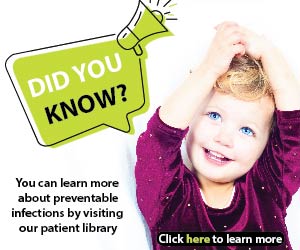HPV: What's the big deal?

There are more than 100 types of HPV, or human papillomavirus - 3 in 4 women and men will have an HPV infection at some point in their lifetime, often without knowing it. In many cases, the body can clear itself of HPV within a few years of infection. Unfortunately, when one or more of the high-risk types of the virus persist, they can cause cell changes that can develop into cancer many years later.
Cervical cancer – get the stats
- Every year, about 1,500 Canadian women are diagnosed with cervical cancer – at an average age of 47.
- More than one in four new cervical cancers diagnosed in 2010 occurred in women under age 40.
HPV-cancer mortality
Cervical cancer claims the lives of 400 women in Canada each year, and another 800 deaths occur due to other HPV-related cancers such as cancers of the anus, penis, vagina, mouth and throat.
Transmission Facts
HPV is highly contagious – it can be spread by skin-to-skin contact during sexual activity (even without intercourse) – often by people who have no signs or symptoms of infection. Transmission rates are highest in young people who have just become sexually active, but HPV incidence is increasing in women in their 30s and 40s.
Protect yourself and your children
Vaccination to protect against HPV-related cancers is approved for females ages 9 to 45 – and along with regular Pap tests as recommended by your doctor, can reduce cervical cancer risk by up to 90%.
Vaccines target strains of HPV most likely to cause cancer: Cervarix protects against types 16 and 18, which cause 70% of cervical cancers. Gardasil 4 protects against types 16 and 18, as well as 6 and 11, which can cause genital warts; while Gardasil 9 helps prevent infections caused by those four HPV types along with five additional strains (31, 33, 45, 52 and 58) also associated with cervical cancer.
Unsure about whether you, or your daughter (or son) should be vaccinated to protect against HPV? Find out about HPV risk factors, and weigh the pros and cons in the privacy of your own home with the HPV Vaccine Decision Tool.
Did you know?
Women over age 30 are more likely to have cervical abnormalities or precancerous changes that could develop into cervical cancer. While it is not routinely recommended for younger women, an HPV DNA test can be added to the Pap test to help identify high-risk types of HPV in women age 30 or older. Ask your doctor about whether HPV screening makes sense for you.
Brought to you by Vaccines411.ca – know where to go for your vaccinations.
This information should not be used as a substitute for the medical care and advice of your doctor. There may be variations in treatment that your physician may recommend based on individual facts and circumstances.
Read more Vaccines411® Articles 
Sources
Note: the hyperlinks that direct to other sites are not continuously updated. It is possible that some links become untraceable over time. Thank you.
- PHAC
https://www.canada.ca/en/public-health/services/infectious-diseases/sexual-health-sexually-transmitted-infections/should-know-hpv-questions-answers.html - Statistics Canada
https://www.statcan.gc.ca/pub/82-624-x/2015001/article/14095-eng.htm - Alberta Prevents Cancer
http://www.albertapreventscancer.ca/reduce-your-risk/prevent-hpv-infections/ - Canadian Cancer Society
http://www.cancer.ca/en/cancer-information/diagnosis-and-treatment/tests-and-procedures/hpv-test/?region=on



